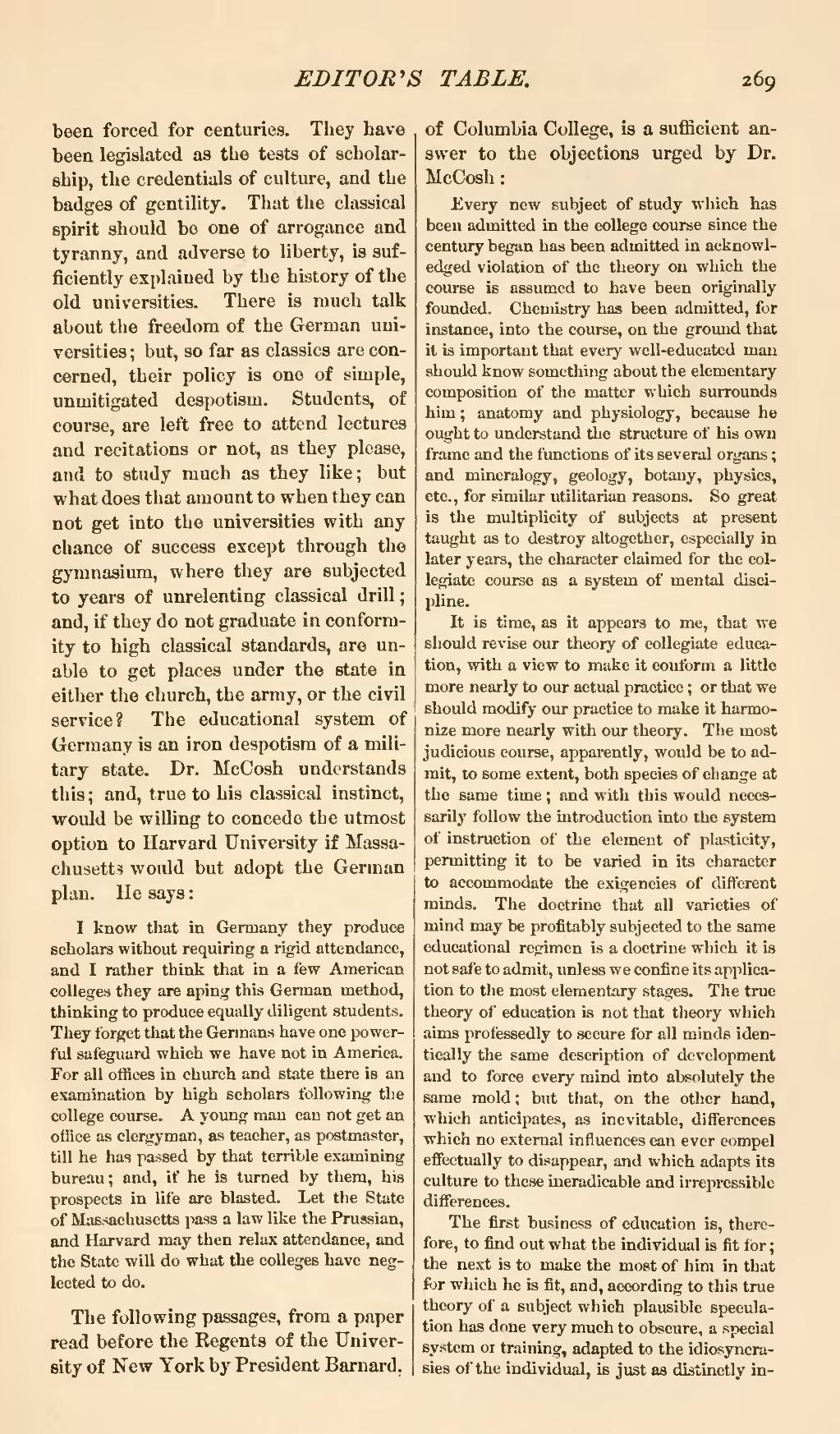been forced for centuries. They have been legislated as the tests of scholarship, the credentials of culture, and the badges of gentility. That the classical spirit should be one of arrogance and tyranny, and adverse to liberty, is sufficiently explained by the history of the old universities. There is much talk about the freedom of the German universities; but, so far as classics are concerned, their policy is one of simple, unmitigated despotism. Students, of course, are left free to attend lectures and recitations or not, as they please, and to study much as they like; but what does that amount to when they can not get into the universities with any chance of success except through the gymnasium, where they are subjected to years of unrelenting classical drill; and, if they do not graduate in conformity to high classical standards, are unable to get places under the state in either the church, the army, or the civil service? The educational system of Germany is an iron despotism of a military state. Dr. McCosh understands this; and, true to his classical instinct, would be willing to concede the utmost option to Harvard University if Massachusetts would but adopt the German plan. He says:
The following passages, from a paper read before the Regents of the University of New York by President Barnard. of Columbia College, is a sufficient answer to the objections urged by Dr. McCosh:
It is time, as it appears to me, that we should revise our theory of collegiate education, with a view to make it conform a little more nearly to our actual practice; or that we should modify our practice to make it harmonize more nearly with our theory. The most judicious course, apparently, would be to admit, to some extent, both species of change at the same time; and with this would necessarily follow the introduction into the system of instruction of the element of plasticity, permitting it to be varied in its character to accommodate the exigencies of different minds. The doctrine that all varieties of mind may be profitably subjected to the same educational regimen is a doctrine which it is not safe to admit, unless we confine its application to the most elementary stages. The true theory of education is not that theory which aims professedly to secure for all minds identically the same description of development and to force every mind into absolutely the same mold; but that, on the other hand, which anticipates, as inevitable, differences which no external influences can ever compel effectually to disappear, and which adapts its culture to these ineradicable and irrepressible differences.
The first business of education is, therefore, to find out what the individual is fit for; the next is to make the most of him in that for which he is fit, and, according to this true theory of a subject which plausible speculation has done very much to obscure, a special system or training, adapted to the idiosyncrasies of the individual, is just as distinctly in-
